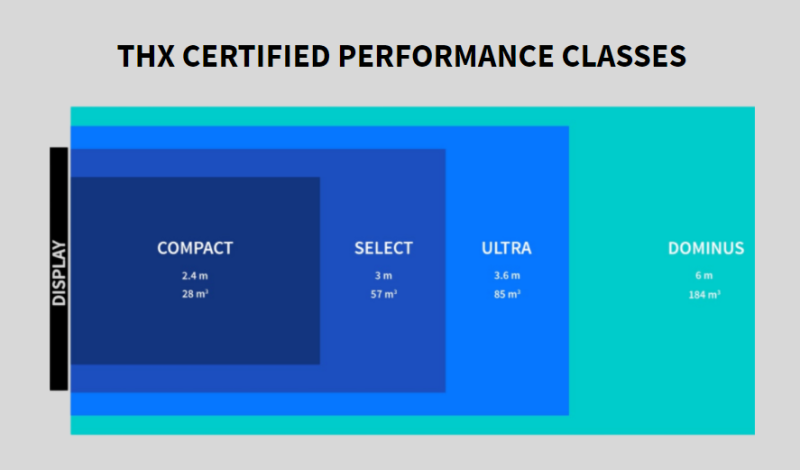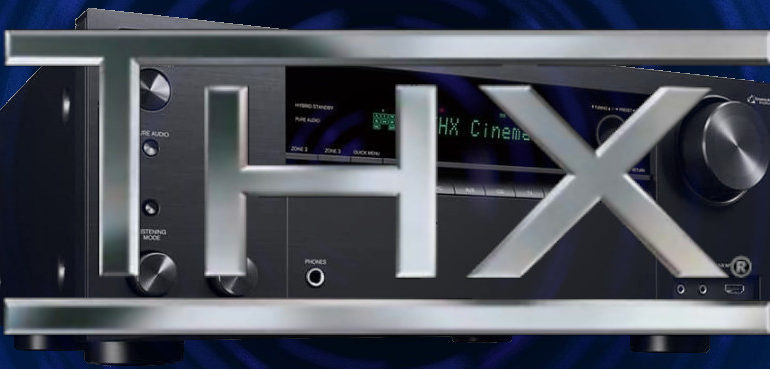What is a THX AV Receiver?
There are a lot of misconceptions out there about THX certifications. If you ask about THX certification about any product, you’ll invariably get a couple of responses that claim that manufacturers “pay” for the certification and that it means nothing. This simply isn’t true. To get the THX certification, the manufacturer in fact does have to pay a fee. But that doesn’t mean that THX immediately rubberstamps their request. They must send their product to THX and they run it through a number of tests. And, after talking with THX staff, they’ve said that no product has ever received their certification on the first try. Instead, they send the product back with notes on what they failed and ask them to resubmit. So, what does it mean when an AV receiver passes and receives the THX certification? Let’s discuss.
THX Certification is a Black Box
THX is notoriously tight-lipped about how and exactly what they do to each type of product in order for it to receive their certification. This is understandable. If they were to clearly delineate what they test for and how they test for it, others could claim they “would” pass. But we can glean some things from their marketing claims.
What THX Test in an AV Receiver
THX puts an AV receiver through a number of tests to make sure that they meet their standards. Here are what we know they test:
- Power Output
- Frequency Response
- Signal-to-Noise Ratio
- Bass Management
Power Output
Power output is going to be delineated by the size of room. According to THX, for an AV receiver to pass they need to be able to power speakers so that they can hit reference level. You can tell what size of room based on the certification level the product receives. Check out this graphic for an explanation:

But this doesn’t tell us enough, does it? We need to know about the speakers before we know what this means. Well, fortunately, we have THX-certified speakers on the market. And you can bet your bottom dollar that those THX speakers were the ones they used to test the AV receivers.
A quick search will show you that most THX speakers have a nominal impedance of 4-ohms and a very high sensitivity rating (usually high 80’s to low 90’s). Now, the 4-ohm rating might concern some readers, but we guarantee this is a very conservative rating. THX speakers should play nice with any AV receiver on the market.
Frequency Response
Here THX is likely ensuring that the amplifier section of the AV receiver isn’t coloring the sound in any way. What they want is a flat response that doesn’t increase the bass or decrease the treble artificially. Every AV receiver is supposed to be designed this way.
Signal-to-Noise Ratio
The SNR measures how “noisy” the receiver is in relation to the sound it can deliver. In modern AV receivers, this is often not an issue (unless you connect too many speakers to some receivers). If you want to know how noisy your receiver is, turn it on but don’t play anything. Turn the volume knob up to 0dB. Now move toward your speakers until you hear a hiss (might never hear it, might hear it from a few feet away). When THX certifies an AV receiver, they are saying that the SNR is very low (almost no audible hiss and definitely no audible hiss from your seat).
Bass Management
Here THX is ensuring that bass management (defined by them as crossing all your speakers over at 80Hz into your subwoofers) is done properly. While all AV receivers should be able to do this without an issue, THX makes sure that it is done correctly.
What Else Do You Get with a THX AV Receiver?
After they ensure that the AV receiver passes all their metrics, they also give the manufacturer access to special THX features. These include:
- THX Loudness Plus – Their version of curves of equal loudness
- Boundary Gain Compensation – adjusts the bass if you are seated close to a wall
- Timbre Matching – attempts to make all your speakers sound the same
- Re-EQ – listening mode that rolls off the highest frequencies
- Other THX listening modes
While some of these features sound pretty good (specifically the Loudness Plus), most aren’t really very exciting. The Boundary Gain Compensation seems to do little more than attenuate the bass. The Timbre Matching is really the same as level matching (which every receiver does). And Re-EQ is completely outdated.
Author’s Note: When movies are mastered for the theater, they often have a bump in the highest frequencies. This is because movie theaters are huge and often the treble gets lost in there. Therefore, the movies that are mastered for theaters have more treble. Re-EQ seeks to fix that bump by rolling off those same frequencies. The thing is that most if not all movies are re-mastered for their disc (and streaming) releases. Those bumps have already been smoothed. So Re-EQ really does nothing you want.
The real problem here is that the THX modes are not compatible with your receiver’s room correction program. This means that if you’ve run your room correction, you either cannot use Loudness Plus, or you will override whatever your room correction did in order to use it. This makes all of these “features” completely pointless to us. We care more about room correction than any of these features. On top of that, Re-EQ and the THX listening modes are not compatible with the newest object-based audio formats (Dolby Atmos and DTS:X).
Should You Buy a THX AV Receiver?
The THX certification process definitely ensures that an AV receiver does all the stuff we want it to do. That is true. It is also true that it costs money for the manufacturer. That cost is certainly rolled into the price of the AV receiver. Many AV receivers on the market aren’t THX certified but can do most if not all of what THX requires just fine. But there is some value to peace of mind. If it were me, I wouldn’t seek out THX certification on a receiver I was looking to purchase. But if it had it, that would be great. I wouldn’t be using any of the THX modes, that’s for sure. I value my room correction much more than that.
Do you have a THX-certified AV receiver? We’d love to hear about your experiences in the comments!


